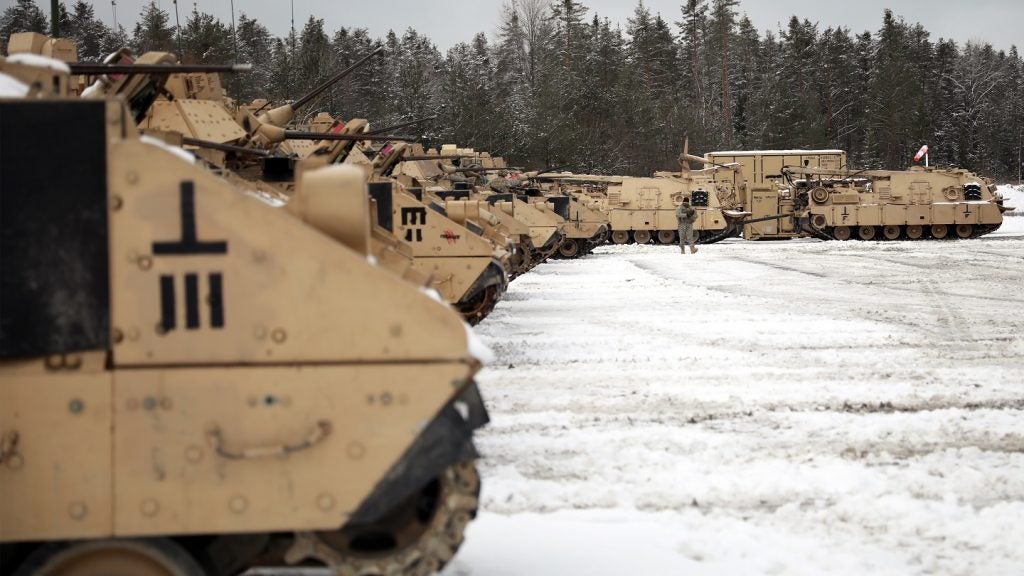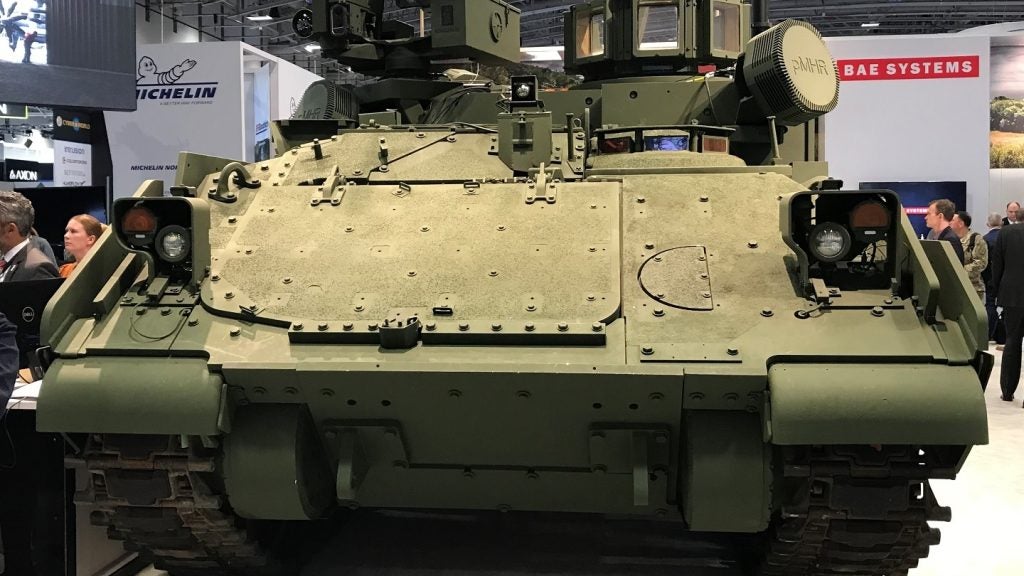UK defence prime BAE Systems’ US-based Land & Armaments entity has been awarded combined contract modifications worth in excess of $700m (£555m) by US Army Contracting Command for the purchase of Armored Multi-Purpose Vehicles (AMPV) and M2A4 and M7A4 Bradley infantry fighting vehicles (IFV).
Announced by the US Department of Defence (DoD) on 31 August, the AMPV contract amounted to $432.5m, with an estimated completion date of February 2027. The M2A4 and M7A4 contract worth was $274.1m and has an estimated completion date of January 2026.
BAE Systems and its US-based entities were forecast to account for 28% of the North American region’s military land vehicle market from by 2032 according to GlobalData analysis, due to the procurement of the Amphibious Combat Vehicle (ACV), AMPV, and Bradley M2A4 and M7A4 fighting vehicles, among others.
In October last year the US Army was permitted to increase its purchase of AMPVs following the provision of around 200 in-service M113 armoured personnel carriers to Ukraine to aid Kyiv in its fight against Russia.
The AMPV programme will deliver around 2,900 vehicles across five variants, including command and control, mortar carrier, general-purpose, medical evacuation, and medical treatment. The medical variants in particular offer a step-change in capability to deployed soldiers, providing greater mobility, force protection and on-board power than the M113 platform it will replace.
Final testing for the AMPV began midway through 2022, with production planned in Q3 last year to rise to around 16 units per month to take into account the Ukrainian M113 recapitalisation.
Lightly armed, the one-person open turret of the AMPV can be installed with a roof-mounted protected weapon station housing 7.62mm or 12.7mm machine guns, or a 40mm automatic grenade launcher.
US Army modernising its mechanised infantry
The US Army is currently undergoing an extensive recapitalisation programme of its armoured mobility fleets, with the AMPV replacing the legacy M113 platforms, while the future Optionally Manned Fighting Vehicle (OMFV) – now redesignated the XM30 mechanised infantry combat vehicle – will in turn replace the Bradley.
Earlier in August the US Army announced another modification to its contract with BAE Systems for M2A4 and M7A4 Bradley provision, which goes back as far as 2018 when the company was tasked with the manufacture of 473 vehicles. Since then, the DoD has amended the contract several times, once in 2019, again in 2022 in a contract worth $31.9m, the mid-August contract worth $113m, and again on 31 August with its $274m announcement.
The combined totals US Army contract to BAE Systems for Bradley production now reaches in excess of $766m. In service with the US Army as well as internationally in Ukraine, Saudi Arabia, Croatia and others, more than 6,700 Bradley’s have been manufactured since 1981.

Both of the latest contact announcements were from the US Army, rather than US Security Assistance funding to Ukraine as has been the case with other platforms and munitions for contract specific to Washington’s support of Kyiv. However, it is unknown whether the latest Bradley contract relates to a US need, or those of Ukraine.
According to GlobalData, some 1,563 Bradley units are currently in service within the US Army’s force structure, broken down to 1,420 M2 IFVs and 143 M7 armoured support vehicles.
In June this year the US Army awarded $1.6bn in contracts to General Dynamics Land Systems and American Rheinmetall Vehicles under the Phase III and IV Detailed Design and Prototype Build and Testing phases of the OMFV programme.
According to the US Army, during the next two phases of the programme, the service will look to mature the design and verify prototype performance during test activities, including a limited user test. The two companies selected for the next phase will be required to deliver up to 11 prototype vehicles, as well as two ballistic hulls and turrets, armour coupons and digital engineering data.
Following the detailed design and prototype build and testing phases, the US Army intends to have a limited competition to downselect to one vendor at Milestone C near the end of fiscal year 2027, with first unit equipped anticipated in fiscal year 2029.









